Basset Hound Dog
- January 31, 2024
- 0 comment
The Basset Hound dog is a charming and distinctive breed known for its endearing appearance and gentle temperament. Originating in France in the 6th century, Basset Hounds were initially bred for their exceptional scent-tracking abilities, making them excellent hunting companions. These dogs are easily recognizable by their short legs, long droopy ears, and soulful eyes, which add to their undeniable charm. Despite their somewhat stubborn nature when it comes to training, Basset Hounds are incredibly affectionate and make excellent family pets.
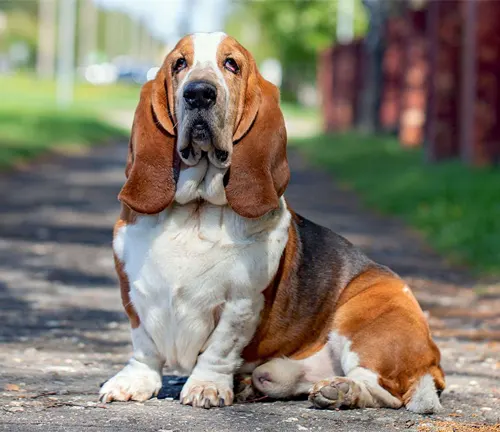
They get along well with children and other animals, making them a beloved choice for those seeking a loyal and lovable companion. In terms of grooming, their short coat is relatively low-maintenance, though their long ears require special attention to prevent infections. While they may appear laid-back, Basset Hounds still need regular exercise to stay healthy and happy. They tend to gain weight, so a balanced diet and portion control are essential. Overall, the Basset Hound is a wonderful breed that has captured the hearts of dog enthusiasts worldwide, thanks to their unique personality and delightful appearance.
| Specification | Description |
|---|---|
| Origin | France (6th century) |
| Size | Medium-sized (40-65 pounds) |
| Appearance | Short legs, long droopy ears, soulful eyes |
| Temperament | Gentle, friendly, affectionate |
| Trainability | Stubborn but responsive to positive reinforcement |
| Exercise Needs | Daily walks and playtime |
| Coat Care | Weekly brushing, ear cleaning, and drying |
| Health Concerns | Hip dysplasia, obesity |
| Lifespan | 10-12 years |
| Pop Culture | Famous character: Droopy |
A Quirky and Lovable Breed
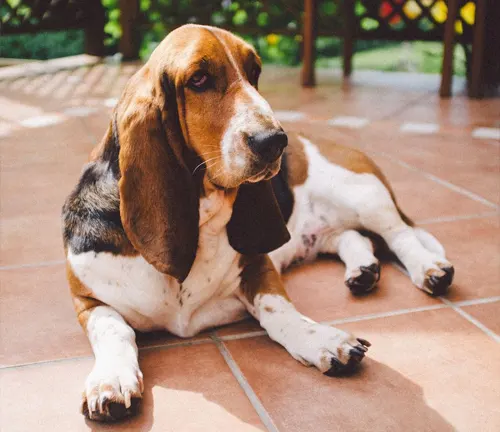
The Basset Hound dog is a beloved breed known for its distinctive appearance and endearing personality. In this article, we will delve into the world of Basset Hounds, exploring their history, characteristics, care requirements, and more. Join us as we uncover what makes these charming dogs so special.
History of the Basset Hound
Basset Hounds have a rich history that dates back to 6th-century France. They were initially bred for hunting small game, thanks to their exceptional sense of smell and slow, methodical tracking abilities.
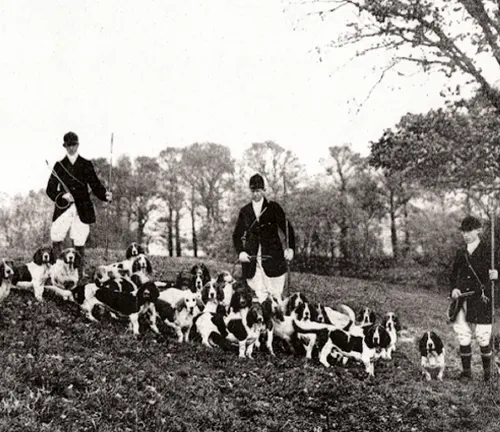
Physical Characteristics
Short Legs, Big Personality
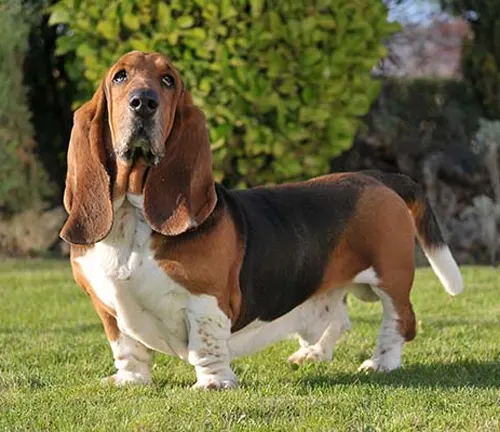
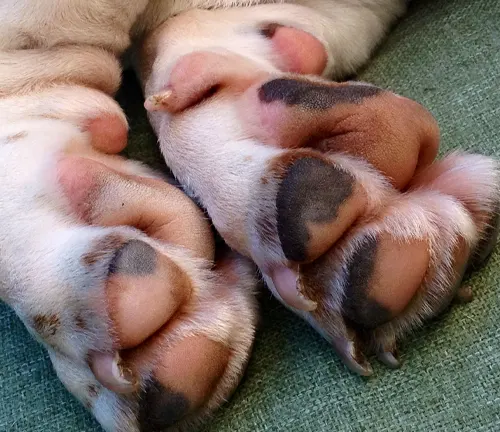
Leg Length
- One of the most prominent features of Basset Hounds is their short legs. This characteristic sets them apart from many other breeds and gives them a distinctive appearance.
Paw Size
- Their paws are large in proportion to their body, which adds to their charm and gives them a slightly comical yet endearing gait.
Long and Droopy Ears
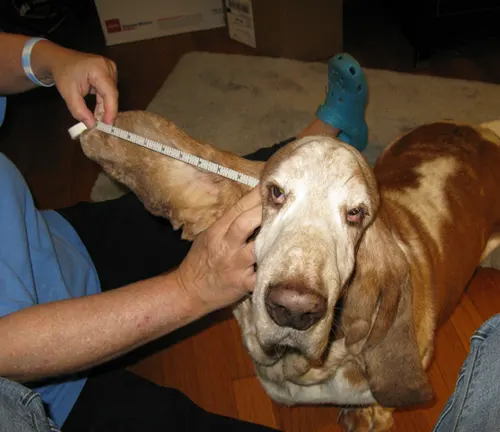
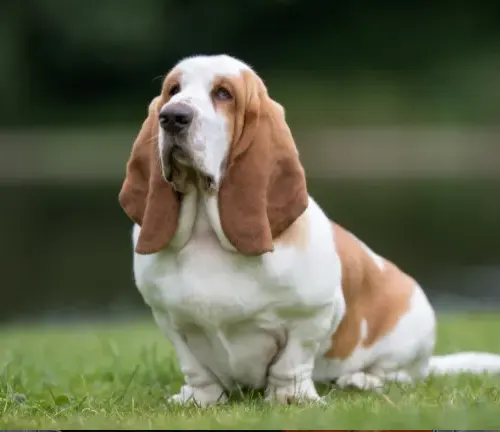
Ear Length
- Perhaps the most iconic feature of Basset Hounds is their long, droopy ears that can touch the ground when they lower their heads. These ears are not only charming but also serve a functional purpose in helping them trap scents while tracking.
Wrinkled Skin
- Basset Hounds have loose and wrinkled skin, especially around their face and neck. This skin not only adds to their distinctive appearance but also aids in trapping scents during their hunting endeavors.
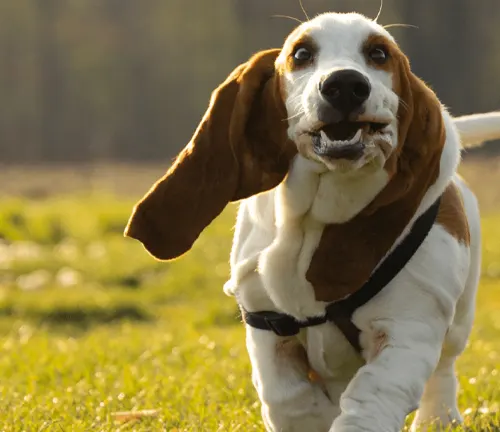
Soulful Eyes
Eye Color
Their large, expressive eyes are typically brown, conveying a gentle and soulful expression that melts hearts.
Prominent Eyelids
Their eyelids are often described as “droopy,” which enhances their doleful and endearing look.
Body Proportions
Body Length
Basset Hounds have a long body that is well-balanced, with a deep chest and a slightly arched back.
Tail
Their tail is set moderately high and is carried with a slight curve, adding grace to their overall appearance.
Size and Weight
Size
Basset Hounds are medium-sized dogs, typically weighing between 40 to 65 pounds when fully grown.
Height
They stand around 11 to 15 inches tall at the shoulder, making them relatively low to the ground.
Temperament and Personality
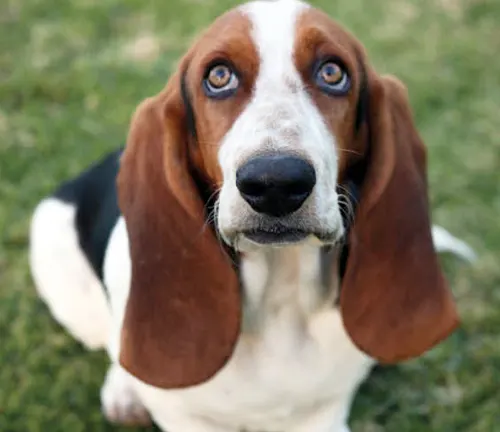
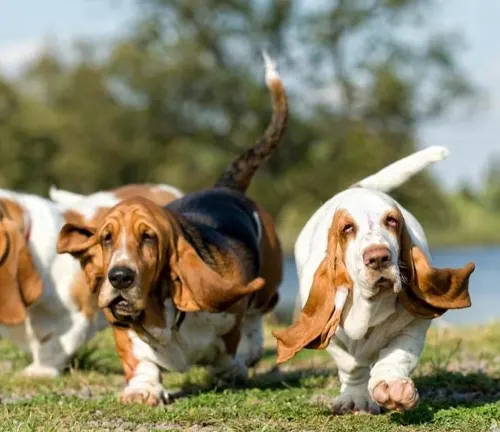
Basset Hounds are known for their gentle and friendly temperament. They possess a laid-back and easygoing nature that makes them excellent companions for families and individuals alike. Their personality traits include
- Affectionate:Basset Hounds are incredibly affectionate dogs. They form strong bonds with their owners and thrive on human companionship. They enjoy being close to their family members and often seek attention and cuddles.
- Gentle: These dogs are among the gentlest breeds you’ll find. They are typically patient and tolerant, especially with children. This gentle disposition makes them well-suited for families with kids.
- Friendly: Basset Hounds are generally friendly towards other animals and strangers. They have a welcoming demeanor and rarely display aggressive behavior. This friendly nature makes them great additions to multi-pet households.
- Laid-Back: Basset Hounds have a somewhat laid-back attitude. They are not hyperactive or overly energetic, which can be a relief for owners who prefer a calmer dog breed.
- Stubborn: While their temperament is mostly easygoing, Basset Hounds can also be a bit stubborn, particularly when it comes to training. They have an independent streak and may need patience and positive reinforcement during training sessions.
- Curious: These dogs have an innate curiosity, especially when it comes to scents. Their exceptional sense of smell drives their curiosity, and they will often follow their noses, which can lead to some amusing and unexpected adventures.
- Good-Natured: Basset Hounds tend to maintain a good-natured disposition, even in challenging situations. They are not prone to aggressive outbursts and are generally well-mannered.
- Vocal: Basset Hounds are known for their distinctive howling and baying. They have a deep and melodious bark that they use to communicate or express excitement. While this can be endearing, it’s something to consider if you live in close quarters with neighbors.
Training and Exercise
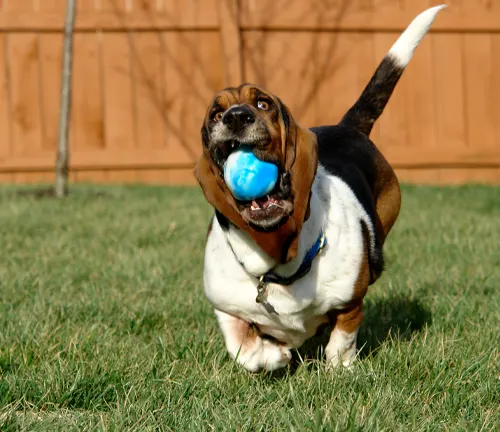
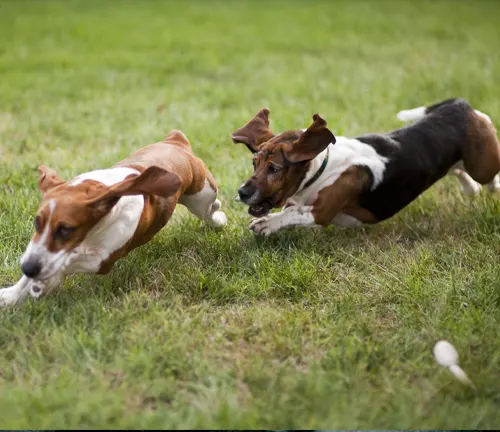
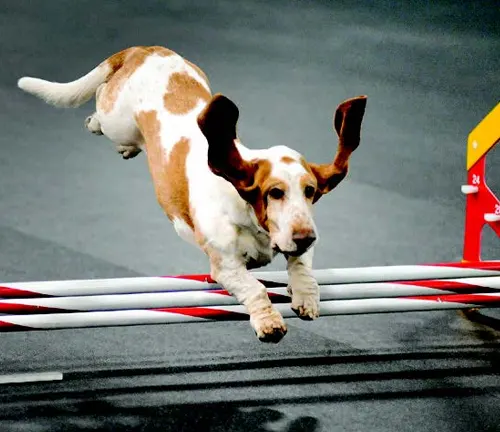
Training Tips
- Positive Reinforcement: Use positive reinforcement techniques such as treats, praise, and affection to reward good behavior during training. Basset Hounds respond well to positive feedback.
- Short, Engaging Sessions: Keep training sessions short and engaging, as Basset Hounds have shorter attention spans. Multiple short sessions throughout the day are more effective than long, tedious ones.
- Consistent Commands: Be consistent with your commands and expectations. Use the same cues for specific behaviors, so your Basset Hound understands what you want from them.
- Socialization: Socialize your Basset Hound early by exposing them to various people, animals, and environments. This helps them become well-adjusted and sociable adults.
- Patience: Basset Hounds may take a bit longer to grasp commands, so be patient. Avoid frustration and maintain a calm and positive demeanor during training sessions.
Exercise Suggestions
- Daily Walks: Basset Hounds benefit from daily walks, ideally twice a day. These walks provide physical exercise and mental stimulation as they explore their environment.
- Secure Yard Play: If you have a secure yard, allow your Basset Hound to play and explore. Supervise them closely, as they may follow their noses and wander off.
- Interactive Toys: Provide interactive toys and puzzle feeders to challenge their problem-solving abilities and keep them mentally engaged.
- Swimming: Basset Hounds often enjoy swimming. If you have access to a safe swimming area, introduce them to water as a low-impact exercise option.
- Moderate Playtime: Engage in moderate playtime sessions with your Basset Hound. Activities like fetch or hide-and-seek can be enjoyable for both you and your dog.
Grooming Requirements
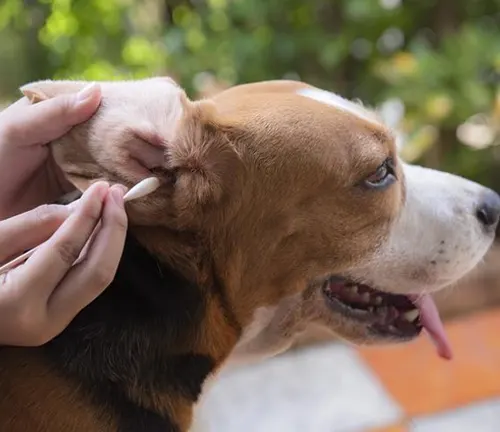
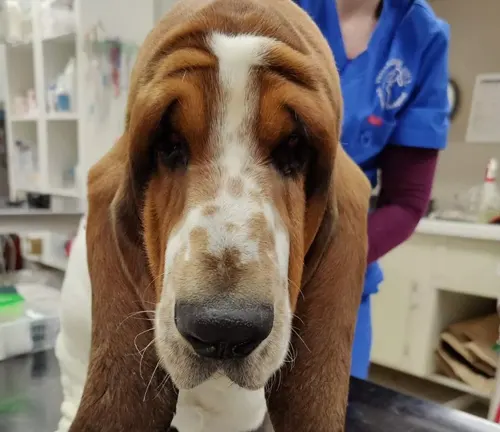
Ear Care
Basset Hounds have long, droopy ears that are prone to collecting dirt, moisture, and debris. Regular ear cleaning is essential to prevent infections. Use a veterinarian-recommended ear cleaning solution and gently wipe the ears with a soft cloth. Be careful not to insert anything into the ear canal.
Skin Fold Care
Basset Hounds have loose and wrinkled skin, especially around their face and neck. These skin folds can trap moisture and become breeding grounds for bacteria and yeast. Regularly check and clean the skin folds to prevent skin irritations and infections. A mild, hypoallergenic skin wipe or baby wipe can be used for cleaning.
Health Concerns
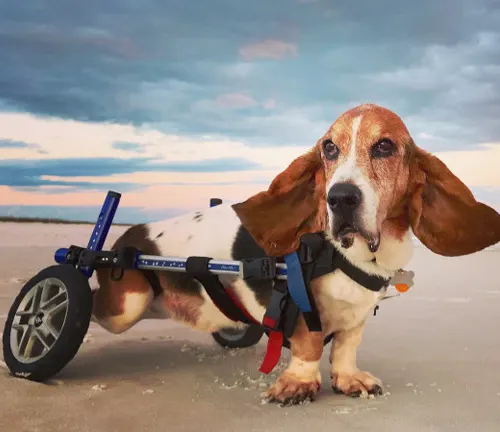
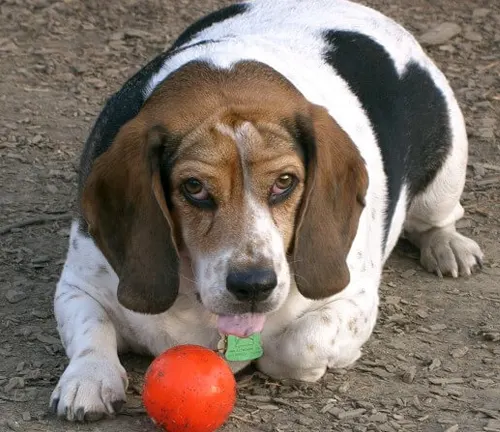
Hip Dysplasia
Basset Hounds are prone to hip dysplasia, which is a genetic condition where the hip joint doesn’t develop properly. This can lead to pain, discomfort, and mobility issues. Regular veterinary check-ups are crucial to monitor their joint health, and early intervention can help manage this condition.
Obesity
Basset Hounds have a tendency to gain weight if not closely monitored. Their love for food, combined with their relatively low activity level, makes them susceptible to obesity. Maintaining a balanced diet and portion control is essential to prevent excessive weight gain, which can lead to various health problems.
Different Species
American Basset Hound
American Basset Hounds are known for their larger size and longer ears compared to European Bassets. They often have a more streamlined appearance and are commonly seen in the United States.
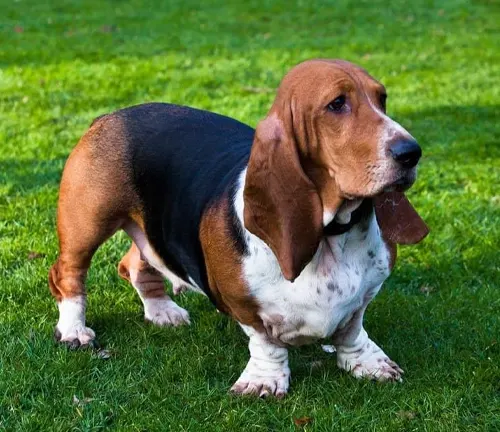
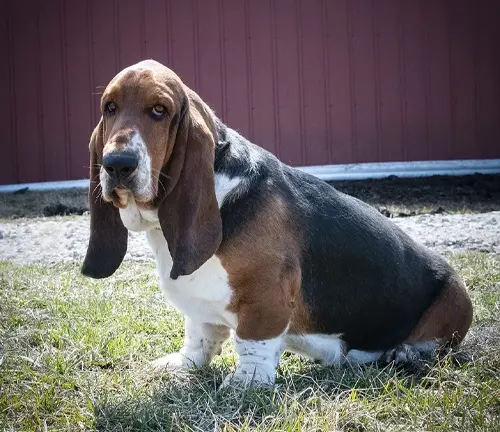
European Basset Hound
European Basset Hounds are typically smaller in size with shorter ears and a stockier build compared to their American counterparts. They are commonly found in Europe and have a slightly different appearance.
Frequently Asked Question (FAQs)
- What is the origin of the Basset Hound breed?
Basset Hounds have their origins in France, dating back to the 6th century. They were initially bred for hunting small game, thanks to their excellent sense of smell and slow tracking abilities. - Are Basset Hounds good family pets?
Yes, Basset Hounds are known for their gentle and friendly nature, making them excellent family pets. They typically get along well with children and other pets. - How big do Basset Hounds typically get?
Basset Hounds are medium-sized dogs, with adults typically weighing between 40 to 65 pounds. - What is the lifespan of a Basset Hound?
On average, Basset Hounds have a lifespan of 10 to 12 years with proper care. - Do Basset Hounds shed a lot?
Basset Hounds do shed, but their short, dense coat makes their shedding relatively moderate. Regular brushing can help manage it. - What are the grooming requirements for Basset Hounds?
Basset Hounds have long ears that need regular cleaning and drying to prevent infections. Their loose and wrinkled skin should also be checked and cleaned. Brush their coat weekly and trim their nails as needed. - Are Basset Hounds easy to train?
Basset Hounds can be a bit stubborn when it comes to training due to their independent nature. Consistent, positive reinforcement-based training methods work best with this breed. - Do Basset Hounds get along with other pets?
Yes, Basset Hounds are generally friendly and get along well with other pets when properly socialized. - What is their exercise requirement?
Despite their laid-back appearance, Basset Hounds require daily exercise to stay healthy and happy. Daily walks and playtime in a secure yard are essential. - Are Basset Hounds prone to health issues?
Yes, Basset Hounds can be prone to health issues, including hip dysplasia and obesity. Regular vet check-ups are important for monitoring their health. - Do they have a strong sense of smell?
Yes, Basset Hounds have an exceptional sense of smell, often ranked among the best in the canine world. This makes them excellent scent-tracking dogs. - What is the difference between American and European Basset Hounds?
American Basset Hounds tend to be larger with longer ears, while European Basset Hounds are smaller with shorter ears and a stockier build. These differences are due to regional breeding preferences. - Are Basset Hounds good watchdogs?
Basset Hounds are generally not considered good watchdogs because of their friendly and non-aggressive nature. - Do they bark a lot?
Basset Hounds are known for their distinctive howling and baying. While they may not bark excessively, they do vocalize, especially when excited or when they detect interesting scents. - How should I introduce a Basset Hound to a new home or environment?
Introduce your Basset Hound to a new home gradually. Allow them to explore and get comfortable at their own pace. Provide a secure and quiet space initially and gradually introduce them to different areas of the home. - What is the best diet for a Basset Hound?
A balanced diet that meets their specific nutritional needs is best for Basset Hounds. Consult with your veterinarian to determine the appropriate diet for your individual dog based on age, activity level, and any health concerns. - Are Basset Hounds good with children?
Yes, Basset Hounds are known for their gentle nature and typically get along well with children. - How often should I take my Basset Hound to the veterinarian?
Regular veterinary check-ups are important. Typically, an annual check-up is recommended, but consult with your vet for a personalized schedule based on your dog’s age and health status.


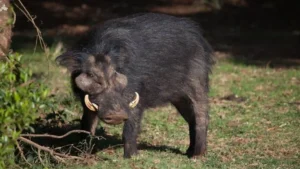
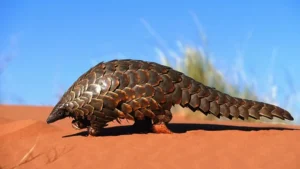
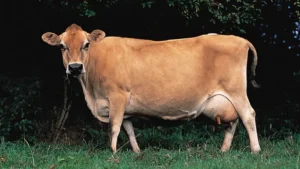
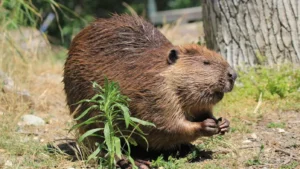
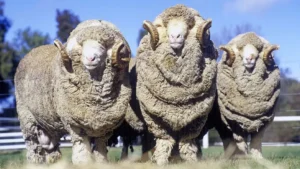
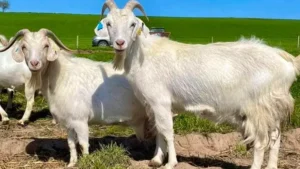
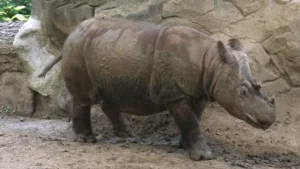
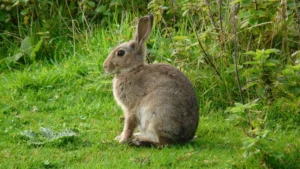
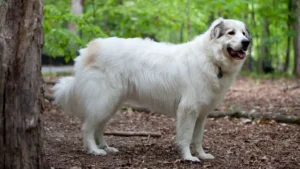


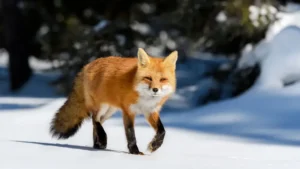
Leave your comment